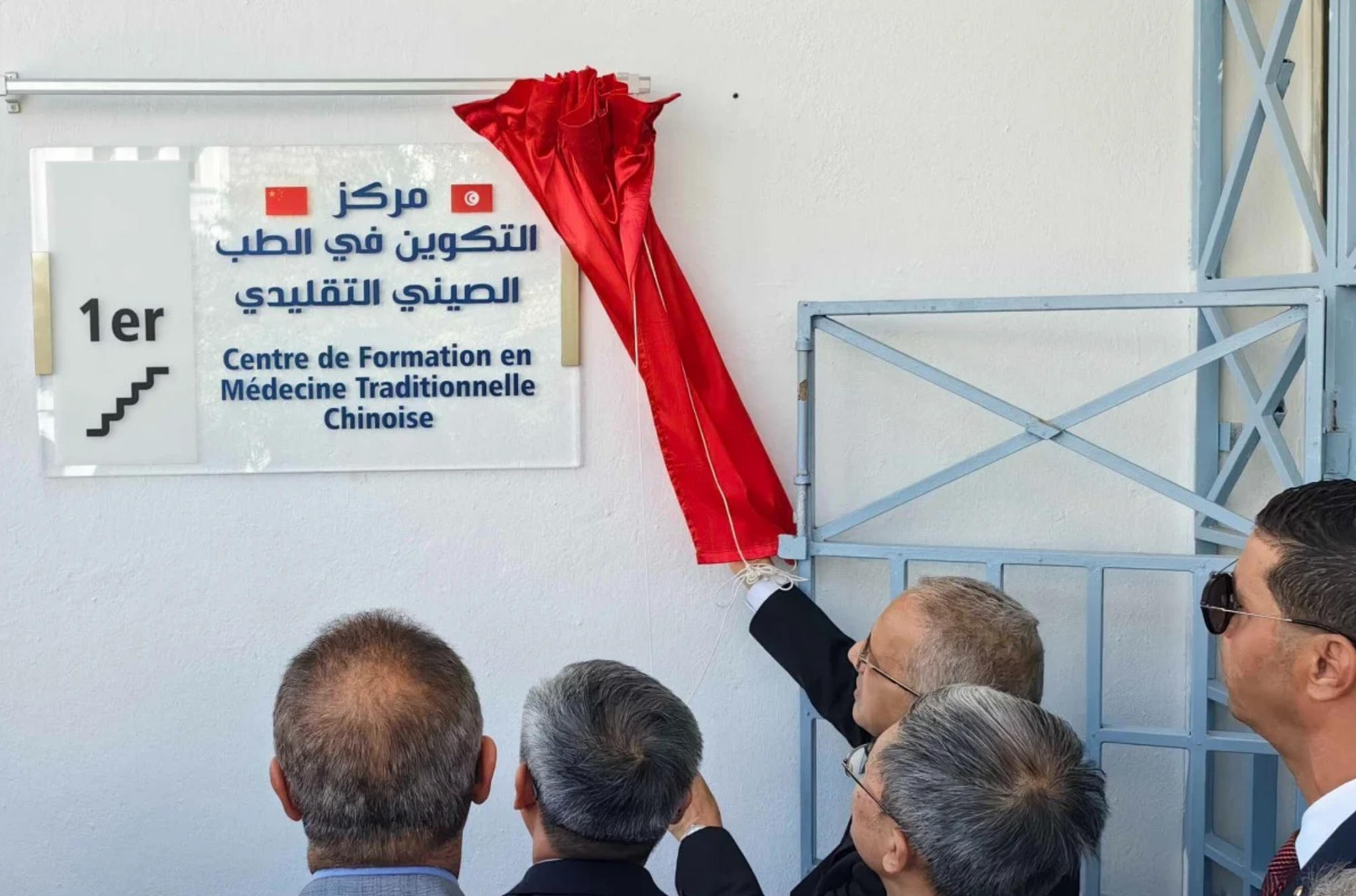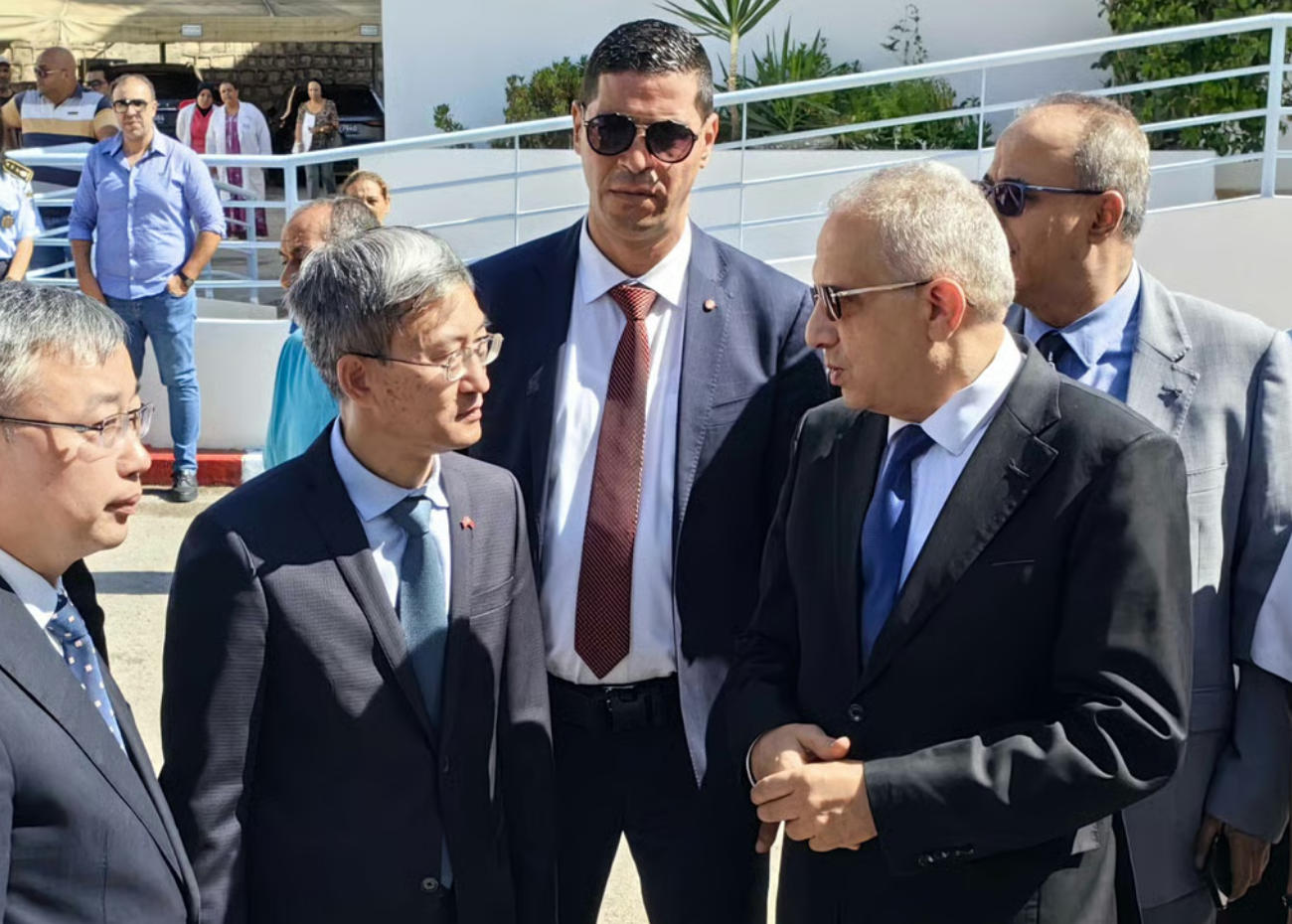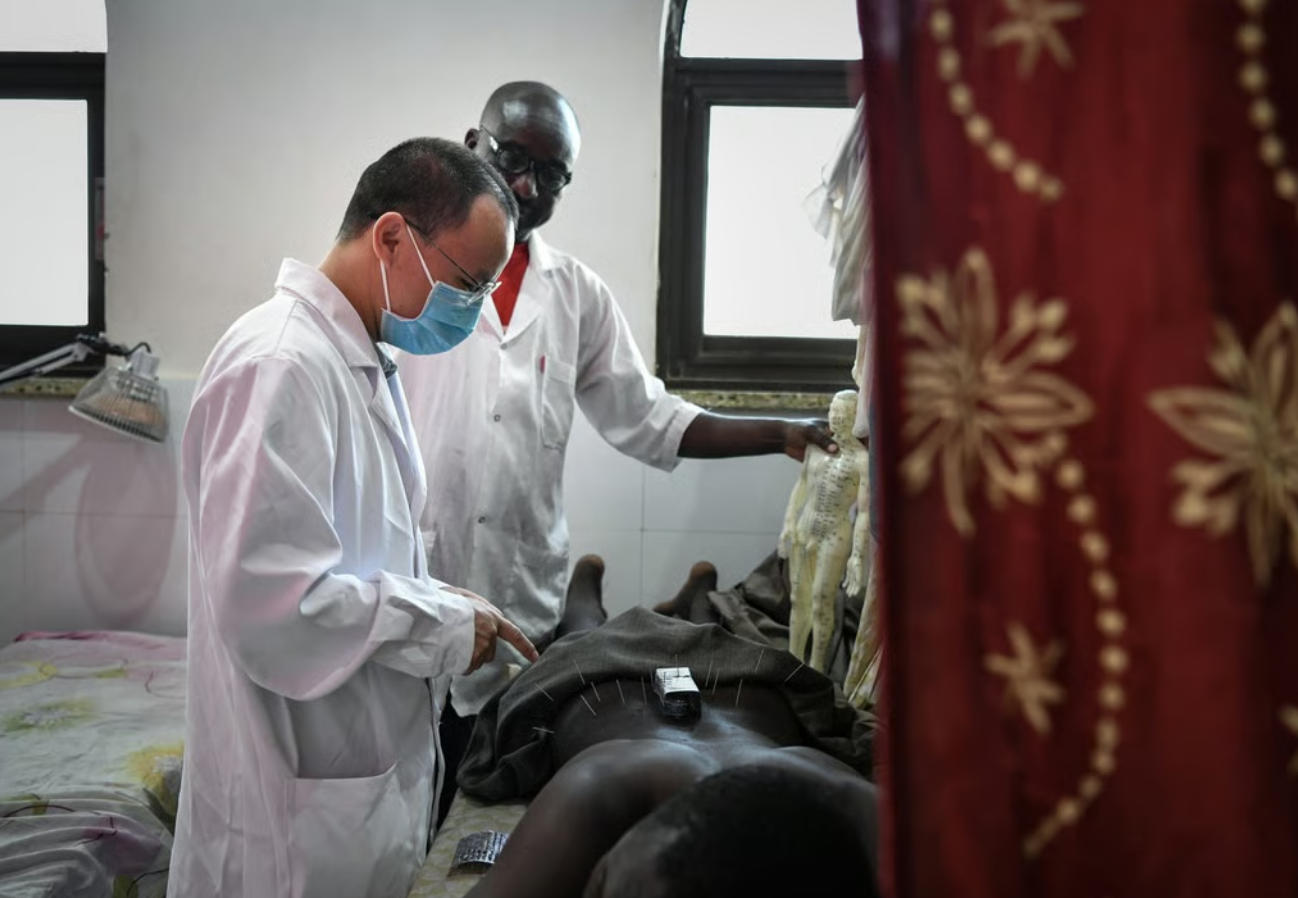
 i_need_contribute
i_need_contribute

Tunisia has unveiled a new Traditional Chinese Medicine (TCM) and Acupuncture Clinical Skills Training Centre, just months after the country’s health minister, Mustapha Ferjani, made a visit to China.
The facility, located at Mongi Slim University Hospital, just 18km (11 miles) from the capital Tunis, was opened on Friday and is a direct result of the two nations reaching a series of agreements on health cooperation during the February visit.
Chinese ambassador to Tunisia, Wan Li, said the centre was the “latest achievement of China-Tunisia traditional medicine cooperation” and that “China and Tunisia will continue to strengthen cooperation in the field of medical and healthcare”.
For decades, Beijing has been sending medical teams to Africa, promoting TCM to help build goodwill and cultural ties.
The growing number of facilities across Africa, such as in South Africa, Zimbabwe, Sierra Leone, Mauritius and Morocco, is part of China’s strategy to use health diplomacy and cultural exchange to expand its soft power on the continent.
A similar TCM training facility was also opened on September 20, in Chad at the Chad-China Friendship Hospital. The event was attended by Shi Ke, vice-governor of Jiangxi province, reflecting the official importance attached to TCM in strengthening ties.

Chinese ambassador to Tunisia Wan Li (second left) with Tunisian Health Minister Mustapha Ferjani (second right) during his February visit to China. Photo: Handout
The strategy is gaining traction, as seen in rising local demand for TCM education and a shift in public perception where acupuncture is increasingly valued not as a foreign import, but as a sustainable component of the continent’s healthcare landscape.
Sun Yun, director of the China programme at the Stimson Centre think tank in Washington, noted that by opening training centres and clinics in Africa, China was using Chinese culture and traditional civilisation to promote relations at the personal level.
“China has done that in many Western countries, and now its focus is on how to better strengthen people-to-people and social-cultural ties,” Sun said. She added that by familiarising the African population with Chinese traditions and culture, a better understanding is hoped to bring stronger ties.
The expansion of these facilities highlights the increasing integration of TCM into Africa’s healthcare landscape, a development that is also reflected in higher education. In South Africa, for instance, there is a strong demand for professional degrees in Chinese medicine and acupuncture at institutions like the University of Johannesburg.
Zijing Hu, an associate professor at the University of Johannesburg, said the acupuncture degree programme launched at the university in 2020 received 8,000 applications for just 50 available places each year.

Chinese doctor Xie Nengxiang performs acupuncture on a patient at the China-Chad Friendship Hospital as part of a training programme for local doctors. Photo: Xinhua
Hu, who is also a registered practitioner and president of the Chinese Medicine and Acupuncture Association of Africa, described China’s strategy to establish training centres as “multifaceted”.
He said TCM provided effective, low-cost healthcare for African communities, created jobs and was increasingly accepted, as shown by its formal recognition in South African law since 2001.
Hu also said TCM and acupuncture played an important role in advancing soft power and fostering stronger bilateral relations with African nations. He explained that by providing cost-effective healthcare options, TCM eased the financial burden on governments and communities while also encouraging cultural exchange.
He said there were 207 registered Chinese medicine and acupuncture practitioners in South Africa, with most based in major cities such as Johannesburg, Cape Town and Durban, but few in smaller cities.
Rebaone Monama, a registered acupuncturist in South Africa, has witnessed first-hand the growing interest and trust in TCM, noting that acupuncture has shifted from being seen as “foreign” to a valued option for patients seeking holistic care over the past decade.
“When patients turn to acupuncture and experience relief, they often become strong advocates, sharing their experiences with family and friends,” said Monama, who practises at Monama Acupuncture.
He said the establishment of TCM training centres in Africa was both generous and strategic because it met a genuine local need. He noted that by providing access to high-quality training in Africa, the centres built local capacity and ensured acupuncture became a sustainable part of African healthcare.
Monama said this growth also reflected a form of cultural diplomacy. “By investing in African practitioners, China is planting seeds that will grow for generations. Every graduate who goes on to practice acupuncture in Africa becomes, in a way, a living ambassador of Chinese medicine,” he said.
Monama also said he believed that TCM and acupuncture practices went beyond medical treatment to build human connections, generate goodwill and strengthen emotional and cultural ties.
“Every time I insert a needle, I am not only working to relieve someone’s pain but also showing the value of a centuries-old healing tradition that China has chosen to share with Africa,” he said.